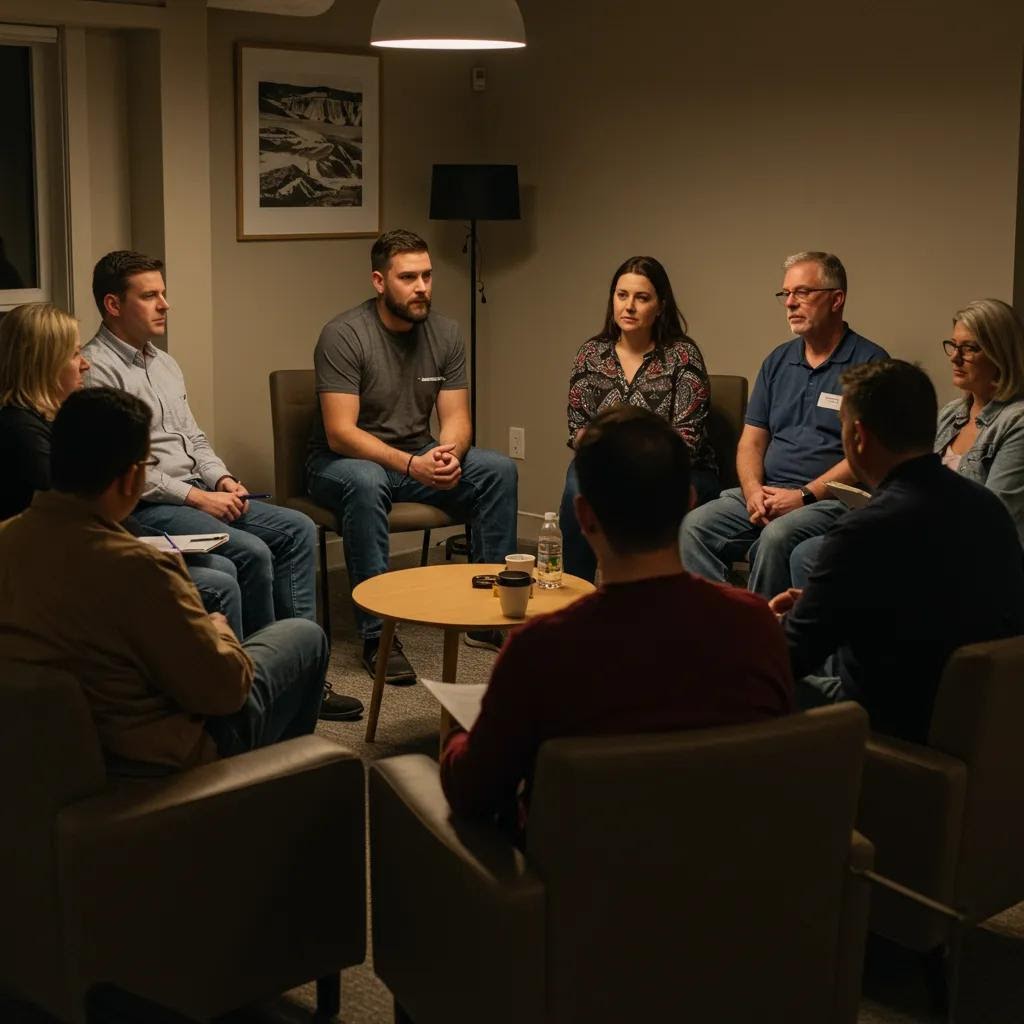
Transform your life in just 30 days with our Intensive Outpatient Treatment in South Carolina. Take the first step towards lasting recovery today!
Recovering from a substance use disorder without pausing your life can feel impossible, but a 30-day intensive outpatient treatment program in South Carolina bridges that gap by delivering structured care alongside your daily responsibilities. Intensive outpatient treatment South Carolina combines evidence-based therapies, peer support, and personalized counseling to address addiction and co-occurring mental health conditions in a non-residential setting.
In this guide, you’ll discover what an IOP entails, the benefits of choosing a 30-day program, the therapy modalities we employ, aftercare planning, and clear answers on duration, effectiveness, and scheduling.
An intensive outpatient program (IOP) is a structured, non-residential level of care that treats substance use disorder and mental health symptoms through frequent therapy sessions, education, and medical oversight. By balancing clinical intensity with everyday life, an IOP reduces relapse risk and enhances resilience—for example, participants attend multiple weekly group meetings and individualized counseling while living at home. This blend of flexibility and accountability lays the groundwork for sustained recovery and leads into a deep dive of its components, distinctions from other levels of care, and eligibility criteria.
Our 30-day intensive outpatient program integrates daily group therapy, individual counseling, family education, and psychiatric evaluation to promote holistic healing.
These components work together to build self-awareness, teach relapse prevention, and strengthen support networks as the program transitions into specialized therapies.
Unlike inpatient rehab that requires overnight stays, IOP treats addiction through scheduled daytime sessions while participants continue living at home. Traditional inpatient programs emphasize detox and 24/7 supervision, whereas IOP prioritizes integration into daily life.
IOP eligibility centers on individuals with mild to moderate substance use disorder, stable living conditions, and the ability to attend regular sessions. Participants often include:
Eligibility also involves a clinical assessment of mental health stability, ensuring safe engagement in group settings and outpatient therapies.
A 30-day IOP delivers rapid access to addiction care while allowing continuity in personal and professional roles. The intensive outpatient treatment South Carolina model supports medical stabilization, therapeutic education, and community integration in a condensed timeline. Considering these advantages informs how flexibility, support systems, and cost-effectiveness converge to optimize recovery.
Intensive Outpatient Programs (IOPs) offer a flexible approach to addiction treatment, allowing individuals to maintain their daily routines while receiving structured care. According to the National Institute on Drug Abuse, Principles of Drug Addiction Treatment, this model is often more cost-effective than residential treatment and can be particularly beneficial for those with work, school, or family responsibilities.
By scheduling most sessions during outpatient hours, IOP participants continue working, studying, and fulfilling family duties without pause. This flexibility preserves income stream, educational progress, and caregiver roles. Maintaining routines reduces stress and helps transfer coping skills learned in therapy directly to real-world scenarios.
An IOP’s support network combines therapeutic personnel, peers, and family involvement to bolster each stage of recovery.
These layers of support foster resilience and establish a safety net that carries into aftercare planning.
Intensive outpatient programs typically incur lower room-and-board expenses than residential rehab while delivering comparable therapeutic intensity. By eliminating lodging fees, IOP participants can allocate resources toward long-term counseling, medication management, and aftercare. This structure reduces overall treatment costs by approximately 30–50% compared to inpatient stays, making recovery more accessible and sustainable.

Lotus Recovery SC’s 30-day program employs cognitive, behavioral, and holistic approaches to treat addiction and mental health conditions concurrently. Combining established modalities ensures each participant’s needs are addressed through evidence-based interventions.
Cognitive Behavioral Therapy targets distorted thought patterns that drive substance use by teaching participants to identify triggers, reframe negative beliefs, and implement problem-solving techniques.
Cognitive Behavioral Therapy (CBT) is a widely used therapeutic approach in addiction treatment, helping individuals identify and modify negative thought patterns and behaviors that contribute to substance use. CBT equips individuals with coping skills to manage cravings and prevent relapse. (Beck, J. S., Cognitive behavior therapy: Basics and beyond (2011)
DBT emphasizes emotional regulation, distress tolerance, and interpersonal effectiveness—crucial skills for those with co-occurring mood disorders. By practicing mindfulness and acceptance strategies, participants learn to navigate intense emotions without resorting to substance use.
Starting treatment requires clear steps that guide individuals and families through assessment, planning, and enrollment. The admissions process at Lotus Recovery SC is designed for clarity, compassion, and efficiency.
These steps ensure quick access to care while tailoring the 30-day IOP to each participant’s unique needs.
Our facilities in Charleston, Columbia, and Greenville are easily accessible from major highways and public transit. To explore program details or schedule an assessment, visit Lotus Recovery SC or call our helpline. For more information on treatment options, refer to the Lotus Recovery's program page.
Graduating from IOP transitions participants into aftercare and community support that reinforce healthy routines and prevent relapse. Structured follow-up and peer networks maintain momentum beyond the core 30 days.
Aftercare plans combine ongoing outpatient therapy, peer support groups, and periodic psychiatric check-ins. This continuum of care ensures sustained accountability and the chance to address emerging challenges before they escalate.
Our alumni network offers regular reunions, mentorship opportunities, and social events that cultivate connection and shared growth. Engaging with alumni reinforces a sense of belonging and encourages continued commitment to sobriety.
These strategies embed accountability and self-monitoring into daily life, reducing the likelihood of setbacks.

Understanding common concerns helps prospective participants make informed decisions about IOP enrollment. Below, insights clarify program length, applicability, insurance mechanics, and scheduling flexibility without a standard Q&A format.
Intensive outpatient programs generally range from four to twelve weeks, with a focused 30-day cycle that maintains therapeutic intensity while advancing participants through treatment stages swiftly.
IOP demonstrates effectiveness across many substance use disorders—alcohol, opioids, stimulants—by addressing underlying cognitive distortions and teaching behavioral coping mechanisms that apply regardless of addiction type.
Insurance plans categorize IOP as a medical necessity when prescribed by a licensed professional. Coverage levels vary by policy, but most major carriers include outpatient addiction treatment benefits, requiring only standard co-payments or deductibles.
Scheduling flexibility allows participants to attend three to five weekly sessions—typically during daytime or early evening—so they can fulfill employment or academic responsibilities without interrupting their recovery.
Recovering through a 30-day intensive outpatient program in South Carolina delivers structured care, evidence-based therapies, and ongoing support without pausing your life. Lotus Recovery SC’s compassionate team and comprehensive approach bridge clinical excellence with real-world integration, helping you build resilience and lasting sobriety. Take the next step toward recovery. Connect with Lotus Recovery SC today for a personalized assessment and begin your journey with confidence.

Reviewer
Henna is a content strategist with over 5 years of experience in behavioral health marketing. She specializes in creating informed, compassionate content for addiction treatment centers, using her deep understanding of the industry to educate, engage, and support individuals seeking recovery.